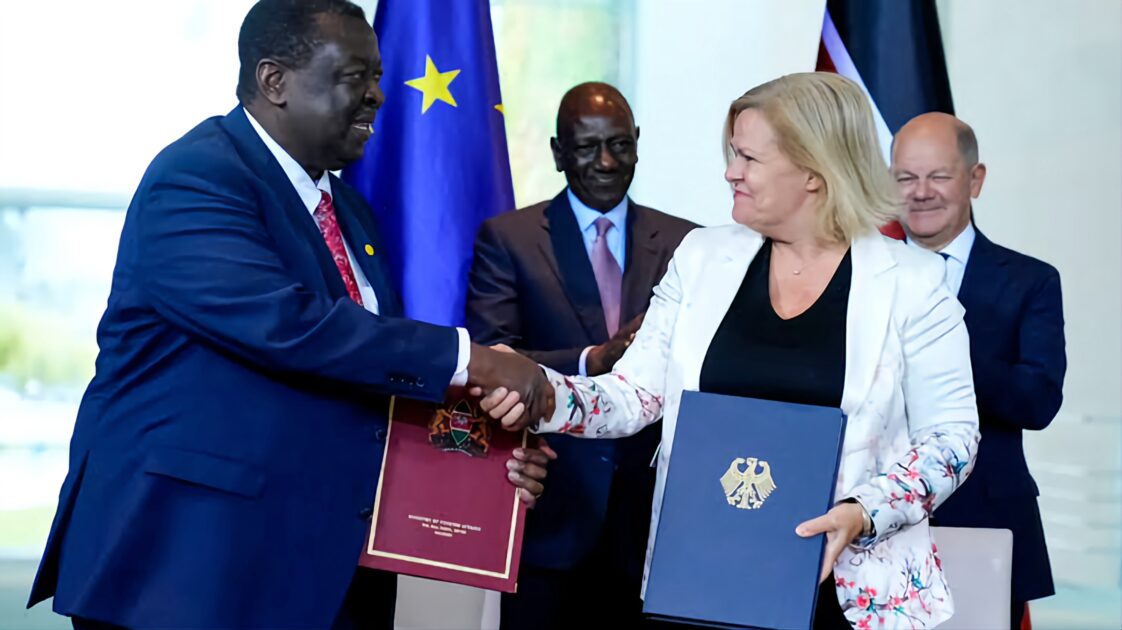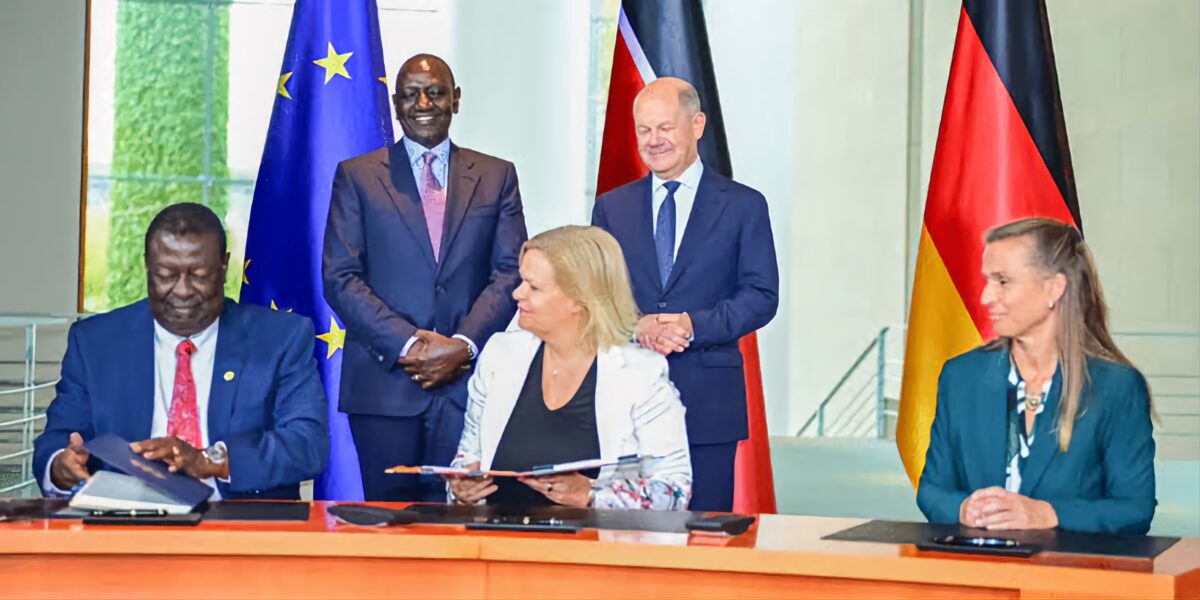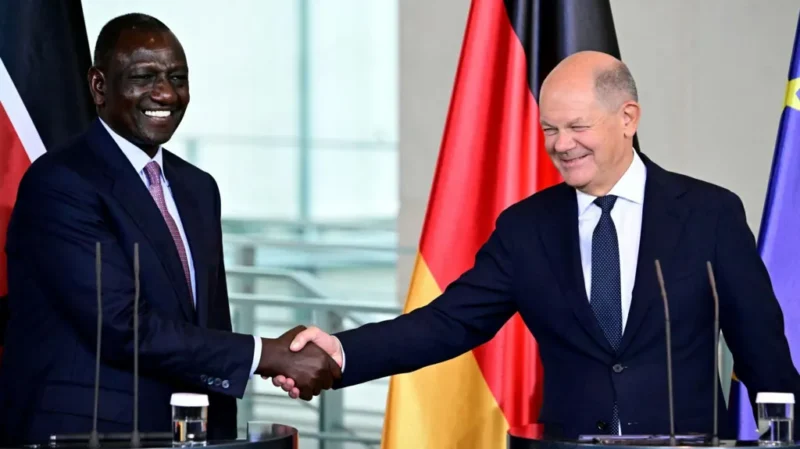Berlin and Nairobi Strike Migration Deal To Address Job Shortages and Migration Issues
Kenya and Germany have signed a major labour migration deal aimed at addressing critical job market challenges in both countries. While Kenya faces rising unemployment among its young professionals, Germany is struggling with a shortage of skilled workers. This agreement will allow skilled and semi-skilled Kenyans to migrate to Germany under a controlled and targeted program.
Key Highlights of the Deal
The deal, signed in Berlin by German Chancellor Olaf Scholz and Kenyan President William Ruto, simplifies the immigration process for Kenyans seeking employment in Europe’s largest economy. It also opens doors for Kenyan students and professionals, particularly in IT, to work and study in Germany—even without formal qualifications in some cases.
Under the agreement:
- Kenyan workers will receive temporary residence permits if they secure approved jobs.
- Kenyans can obtain long-term visas for vocational training or higher education in Germany.
- IT specialists without formal qualifications will be allowed to work in Germany, provided their skills are recognized.
The agreement also ensures protections for Kenyan workers, with provisions to combat labour exploitation, forced labour, and human trafficking.
Pilot Project in Flensburg
The first group of Kenyan workers, consisting of five bus drivers, has already arrived in Flensburg, Germany, as part of a pilot project. Schleswig-Holstein’s Transport Minister Claus Ruhe Madsen said Germany needed “hard-working hands and clever minds” to address its workforce shortage.

The International Labour Organisation (ILO) welcomed the agreement, highlighting its potential to increase access to decent foreign jobs for Kenyan workers and address Germany’s labour gaps.
Concerns Over Brain Drain
While the deal is being celebrated as a win-win, there are concerns in Kenya over the loss of skilled professionals, especially in healthcare. Kenyan lawyer and politician Ekuru Aukot warned of a potential “brain drain,” with doctors and nurses leaving for better opportunities abroad.
However, Roseline Njogu, a senior Kenyan foreign affairs official, emphasized that Kenya is responding to global market demands, adding, “Every year, a million people join the Kenyan labour market, and it takes time and resources to create local opportunities.”
Germany’s labour migration agreement is part of its broader strategy to control immigration while addressing domestic job shortages. The agreement also includes mechanisms to streamline the repatriation of Kenyans residing illegally in Germany.
A Broader Immigration Context

This deal comes at a time when immigration is a heated issue in Germany, amid the rise of the far-right anti-immigration party, Alternative for Germany (AfD). Germany has welcomed over a million refugees in recent years, particularly from Syria and Ukraine, but the country’s focus is now shifting towards skilled migration to address its economic needs.
This agreement is a crucial step in fostering mutually beneficial migration between Kenya and Germany, with both nations aiming to meet their respective labour market demands.










Join our Channel...